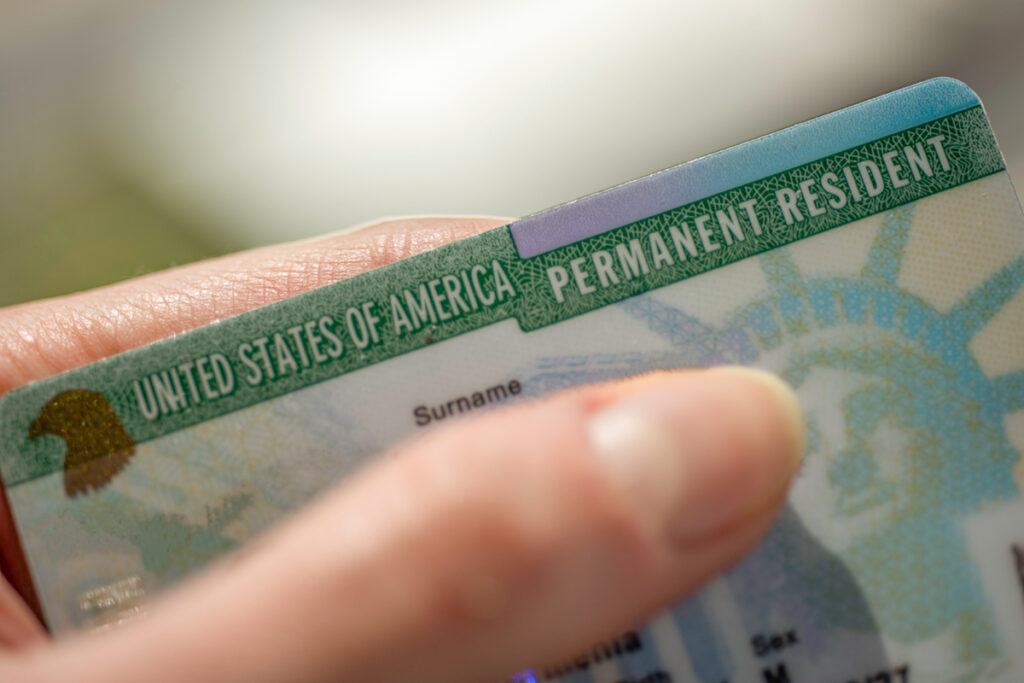Family Based Immigration
Among the most common services provided by Slavin Law relate to family-based immigrant petitions. These petitions are filed by either U.S. citizens or Lawful Permanent Residents. Who can file and how long it takes depends on the relationship of the petitioner and beneficiary (i.e., the Preference Category). Special rules apply to ‘Immediate Relatives’ which are spouses, parents and children of U.S. Citizens. Visa numbers are immediately available to Immediate Relatives with approved Visa Petitions. For all others, there may be a lengthy wait for visa availability due to strict annual limits on these visas. The length of wait depends on the applicable preference category as well as the beneficiary/applicant’s country of origin.
Slavin Law has extensive experience in family-related matters, including the filing of visa petitions (Form I-130) and applications for permanent residence (Form I-485). Our firm can assist in the preparation of all applicable forms and can represent you at interviews at USCIS offices and U.S. Consulates. We assist with all phases of the family-based immigration process.
Please contact us for a consultation to determine the best path for you to take.
Consular Processing
Family members, fiancés, or employees living abroad need to engage in the consular process at a U.S. Embassy abroad to obtain a visa to enter the United States. To learn how consular processing can meet your needs in situations where you need to get a visa that can lead to permanent residence. We work closely with U.S. residents to make sure that the U.S. State Department receives the necessary information to help consular processing work smoothly for you and your family.
To learn how consular processing can meet your needs in situations where you need to get a visa that can lead to permanent residence, contact us for a consultation.
Marriage Based Green Card
Getting married is a wonderful life experience and for those with immigrant spouses or fiancés, this is a great opportunity to help your other half obtain a green card. Determining how to proceed can be complicated and there are many things to consider.
Please contact Slavin Law to get an in-depth consultation to determine what is the best course of action for your situation.
Fiancé Visa (K-1)
If you are a U.S. citizen engaged to a non-citizen, you may apply for a K-1 visa for their entry into the United States. The purpose of the visa is to become married and then for them to reside here. If your fiancé is granted a K-1 visa, you will need to marry within 90 days of entry into the United States.
Once married, your new spouse can apply to adjust their status to become a lawful permanent resident (green card holder) of the United States.
Please contact us for a consultation.
Removal of Conditions on Residence
If you are married for fewer than two years when you receive your marriage-based conditional green card, you must file to remove the condition within 90 days of the card’s expiration. It is important to maintain your joint documents over the years to demonstrate to the immigration service that you are still in a bona fide marriage.
We understand that unfortunately things happen and marriages do not work out. If you find yourself in a situation where the marriage is not going as planned, and divorce proceedings have commenced or may soon commence, we can assist you with the conditional residence as well.
Please contact us for a consultation.
Naturalization and Citizenship
The path to U.S. Citizenship can be confusing and overwhelming. Let Slavin Law guide you on your path to U.S. Citizenship. Slavin Law provides outstanding advice and expertise with respect to Citizenship laws and naturalization and has represented numerous clients in their citizenship applications and interviews. The traditional path to U.S. Citizenship generally requires the applicant to have been a Lawful Permanent Resident for a requisite number of years before they may apply for “naturalization.” In addition, an applicant for naturalization must generally be 18 years or older, must meet the continuous residence and physical presence requirements, must meet the “good moral character” requirements, and must demonstrate “knowledge of English language, U.S. history, and government” (unless the applicant qualifies for a waiver of said requirement(s)).
In addition to derivation of citizenship via naturalization or birth in the U.S. (or certain incorporated territories), in certain situations U.S. Citizenship can be derived at birth outside of the U.S. or by derivation through the naturalization or U.S. birth of one parent.
There are many benefits and privileges to obtaining U.S. Citizenship, including the right to vote in U.S. elections and the ability to petition for permanent residence for a wider variety of family members. Slavin law is experienced in all aspects of citizenship and naturalization.
Contact us today to determine your eligibility for Naturalization or U.S. Citizenship.
Employment Authorization
An Employment Authorization Document (EAD card) is also known as a work permit. The employment authorization document is issued by United States Citizenship and Immigration Services (USCIS) and is issued to show your legal right to work in the United States.
Please contact us to determine your eligibility to apply for an Employment Authorization Document.
Asylee & Refugee Green Cards
A Refugee or Asylee may apply for permanent resident status in the United States one-year after being admitted as a refugee or being granted asylum status. If you are a Refugee, you are required by law to apply for permanent resident status one-year after being admitted to U.S. in refugee status.
If you are an asylee, you are not required to apply for permanent resident status after being granted asylum for one year. However, it may be in your best interest to do so.
Please contact us to apply for your green card.
Victims of Crimes (U Visa)
Many immigrants are afraid to report that they have been the victim of a crime. Often, this is because the immigrant believes he or she will be arrested and deported if they report the crime. However, the laws of the United States provide a number of protections for immigrants who have been the victim of a crime.
The U nonimmigrant status (U visa) is set aside for victims of certain crimes who have suffered mental or physical abuse and are helpful to law enforcement or government officials in the investigation or prosecution of criminal activity. Immediate family members of the victim may also obtain U visa status if the U visa is approved. Obtaining a U visa can be challenging, and applicants have to undergo a complex application process.
Please contact Slavin Law for a consultation if you are a victim of a crime to determine your eligibility.
Deferred Action for Childhood Arrivals (DACA)
Deferred Action For Childhood Arrivals (DACA) is a federal immigration law that allows individuals who were brought into the U.S. illegally as children, and who meet program requirements, to remain in the U.S. for a period of two years. Individuals need to reapply every two years to remain lawfully in the U.S.
DACA does not provide illegal immigrants with a path to citizenship. However, it does defer deportation/removal proceedings and provides employment authorization so individuals can work legally in the U.S.
Temporary Protected Status
Temporary Protected Status (TPS) is a temporary immigration status for certain eligible foreign nationals from designated countries. Congress established a procedure that allows the Attorney General of the United States to provide TPS to aliens in the United States who are temporarily unable to return to their homeland because of environmental disasters, ongoing armed conflicts or other extraordinary conditions. You may be eligible for Temporary Protected Status is you are from Burma/Myanmar, El Salvador, Haiti, Honduras, Nepal, Nicaragua, Somalia, South Sudan, Sudan, Syria, Venezuela, and Yemen.
Please contact Slavin Law for a consultation to determine your eligibility for TPS.


